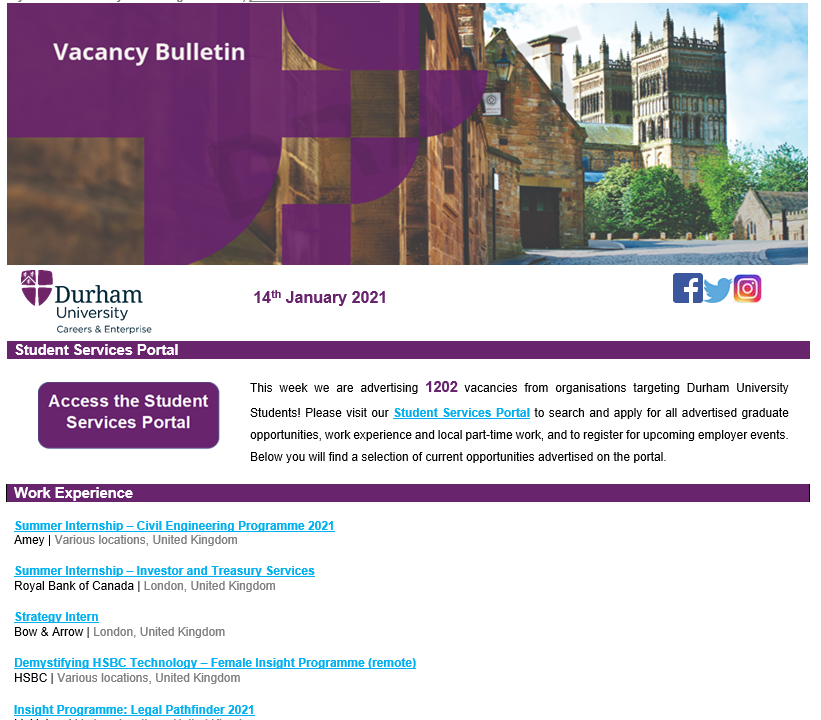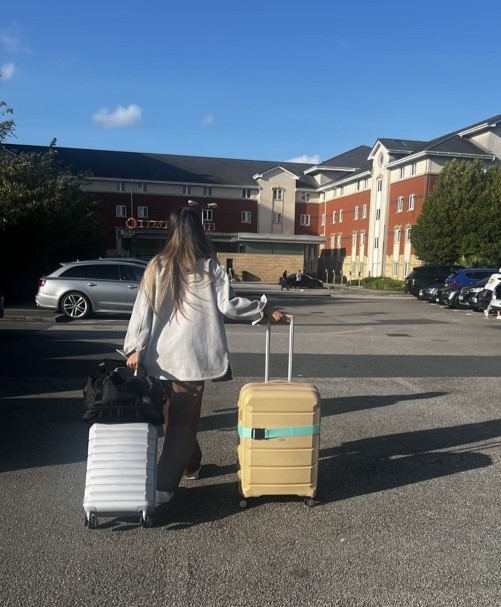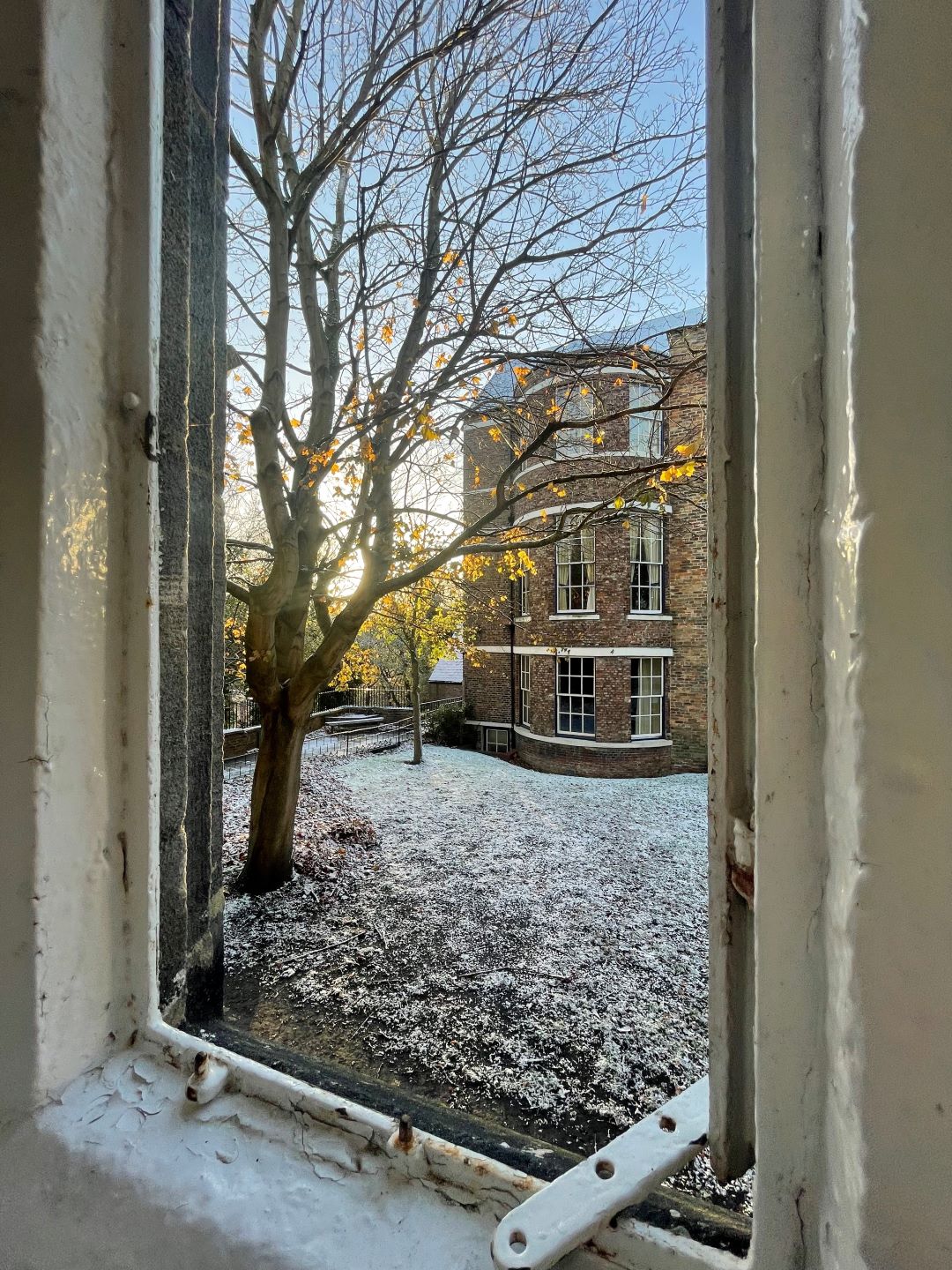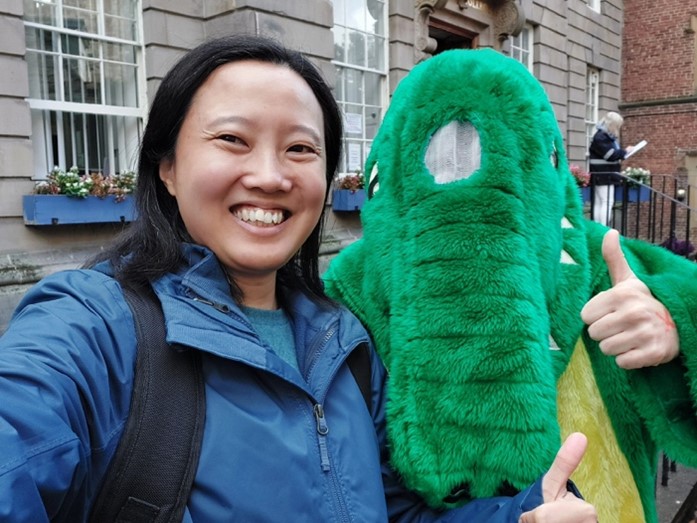I’ve always been attracted to the idea of earning my own pocket money before university, which was why I thought I’d try applying to a few jobs during my first and second years of university. I just love the feeling of being (somewhat) financially independent, treating myself to something nice or buying my parents gifts using my own money. I also thought it’d look great on my CV, and I’ll be able to talk about the soft skills I’ve earned in interviews.
How did I find jobs and what’s out there?
At first, I was a bit worried about where to find jobs and how to apply, especially because I came from China and wasn’t sure how things work here. So I started by talking to the careers service in Durham by booking a one-to-one appointment with them. I was then pleasantly surprised by how helpful and friendly they were – it felt like they genuinely wanted to help me and gave me so much useful advice, including several websites to find jobs. They also reassured me about working while I study, as the time management skill will come naturally when I juggle study and work.

I did as the careers service suggested and signed up for the email alerts from several different careers websites, including the one from the careers service. In all honesty, I didn’t read all of them but just glanced at them once in a while, keeping an eye on things I was interested in.
When I did find something that looks interesting, I’d look at the job description thoroughly, imagine myself doing what’s on the roles and responsibilities, and ask myself: would I want to do that every day/week? If the answer is yes, I’d have a go at applying, and sign up for the email alert to that specific company if there is one, in case anything else interesting comes up from them.
Many jobs don’t care what degree subjects you are doing or require any prior experience, so I always submit an application if I’m interested and have some of the skills it asks for. There are loads of local part-time jobs in the restaurants and shops in Durham, as well as online internships for big companies and part-time jobs with the University. I worked for the Student Union as the election media observer and the School of Education as a research assistant, as well as for Durham University Student Recruitment as a Durham Student Ambassador.

Balancing studying and working
As an international student, my visa only actually allows me to work for 20 hours a week. To be honest, I don’t think it was ever a problem for me because I don’t want to work any more than that anyway. It was great to work as the Durham Student Ambassador because the coordinator knows everyone employed needs to juggle study and work, so she actually sends out a weekly email with all the opportunities available and I’d only pick the ones I want to do when I am available that week. It’s a very wide variety of opportunities as well, from school visits to summer schools, from open days and filling out surveys.
I think the careers service was right in saying that time management skills come naturally, because the moment you are thinking about whether to work that day or study that day, you are already prioritising and managing your own workload. It’s as simple as that: if you are feeling exhausted and have exams to revise for, don’t work! If you find yourself twiddling your thumbs out of boredom, sign up for a few things you are interested in, and you’ll be surprised at what you are capable of.
Discover more
Check out The Careers Employability and Enterprise webpages

Lijie Dong
I graduated with a Philosophy and Politics degree last July, currently working for the Campaigns team at Durham University. Big fan of cooking Chinese food and making bubble tea.







